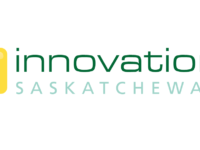Social Security is now proactively sending communication of the proposal to award the Family Allowance, as soon as the baby is registered at the maternity hospital. All the father or mother has to do is go to their Social Security Direct message area and confirm the proposal. With this confirmation, the Family Allowance is automatically awarded and no further action is required.
Innovation Tag Opengov: digital government
In order to continuously improve public policies and correct any deployment difficulties, the French Government has set up a data-driven steering system that allows it to monitor the results of more than 60 priority policies across all departments in its territory. This system is embodied by an internal steering and monitoring tool (PILOTE) and a citizen information site presenting the results in open data.
The City of Austin launched Data Impact Visuals & Exploration (DIVE) to address low data literacy, limited accessibility, and lack of decision support tools. This project aims to empower diverse users with data skills, tools, and resources to make informed decisions. DIVE benefits community members, City staff, universities and funders. Innovative features include user-centric design, multiple components, a community-based approach and a long-term sustainability plan.
Virtual robots have been developed to simulate human interaction within the judicial processes of the Court of Justice of the State of Santa Catarina. The innovation involved the centralisation of services and tasks, which has relieved the workload of staff, allowing them to focus on more complex tasks.
In response to Innovation Saskatchewan's call for public sector challenges through its Innovation Challenge, the Ministry of Environment partnered with Prairie Robotics, a Regina-based AI startup, to tackle waste audits. Their AI-powered solution automates waste audit processes, cutting down time, costs, and resources previously required for manual audits. The technology identifies contaminants in recycling streams and tailors educational materials to individual households, enhancing engagement,…
The project reduces the digital divide and accessibility problems for people with special needs and simplifies technology. It is a layer of artificial intelligence (AL21) that facilitates navigation and assists in carrying out electronic procedures, together with the deployment of cyberkiosks that allow access to technology free of charge and Smart Centres to train citizens in digital skills. The Public Procurement of Innovation methodology is used in its implementation.
"Being new in Norway", is a prioritized life event in the Norwegian government`s digitization strategy aiming to:
Provide a holistic and comprehensive public info to the newcomers as end-users
Accelerate newcomers’ participation in work and society
Increase public resources efficiency
The website nyinorge.no/en is addressing those goals and is a hub for accessing public information to newcomers
We used foresight methodology to contribute to more long-term and sustainable service delivery.
Alice, a bid, contract and notice analyser, emerged to address critical challenges in public procurement, whose processes present vulnerabilities, risks of fraud and errors. Alice supports public purchases and promoting efficiency in procurement. In 2023, Alice analysed 190,923 acquisitions on the main public procurement portals. The analyses, timely identification of inconsistencies and alerts to auditors generated 203 audit jobs worth a total of R$27 billion. Preventing errors or fraud with…
Recognising the need for a high level of Cyber Security across the public sector, the National Cyber Security Strategy (NCSS) called for the creation of a Common Cyber Security Baseline Standard across all Public Sector Bodies and for the establishment of the “CORE Network” to share best practice for cyber security across Government. This project embodies the Irish Civil Service Renewal 2030 Strategy by delivering evidence-informed policy and services, harnessing digital technology and…
Lisbon City Council is one of the 10 largest public purchasers in Portugal. The relevance of public procurement in the municipal activity led to the development of an internal portal - the Collaborative Purchasing Portal - to bring together all those who work in this area. With this Portal, the Lisbon City Council intends to foster an environment of trust, knowledge and sharing, and to strengthen the mission of its workers and the ties that unite them in a digital environment.

